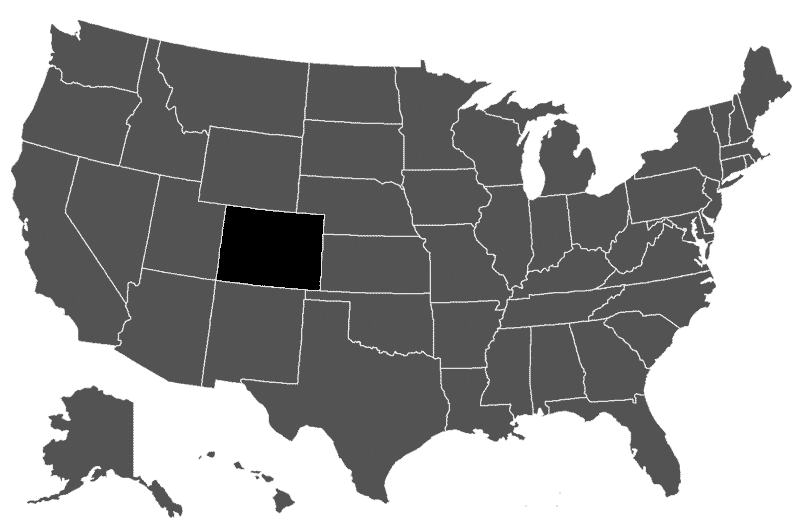Psychology School: How to Choose the Right Program in 2026
Choosing the right psychology program depends on your career goals. Licensed clinical psychologists require a doctoral degree (PhD or PsyD), which typically takes 8-10 years to complete and earns a median annual salary of approximately $96,100. Counselors and therapists usually require a master's degree (2-3 years), earning median salaries of $59,190-$63,780. Start by identifying your desired career path, then select accredited programs that match your specialization, format preferences, and location needs.
Pursuing a career in psychology provides meaningful opportunities to help individuals overcome challenges and enhance their lives. Whether you want to become a licensed clinical psychologist, school counselor, or mental health therapist, each pathway requires specific education, training, and credentials. This guide breaks down psychology degree options from associate through doctoral programs, helping you understand what each degree enables you to do and how to choose the right program for your goals.
 Psychology students can pursue diverse career paths with strong job growth and competitive salaries. As of May 2024, mental health counselors earn a median salary of $59,190, while marriage and family therapists earn $63,780, according to the US Bureau of Labor Statistics. Licensed psychologists with doctoral degrees can earn significantly more, with many specializations offering six-figure salaries.
Psychology students can pursue diverse career paths with strong job growth and competitive salaries. As of May 2024, mental health counselors earn a median salary of $59,190, while marriage and family therapists earn $63,780, according to the US Bureau of Labor Statistics. Licensed psychologists with doctoral degrees can earn significantly more, with many specializations offering six-figure salaries.
When you commit to a psychology career, you're investing several years in education, supervised practice, and licensing exams. Understanding your options upfront helps you plan the most efficient path to your goals.
Table of Contents
- How to Choose the Right Psychology Program
- Earning Your Associate Degree in Psychology
- Earning Your Bachelor's Degree in Psychology
- Earning Your Master's Degree in Psychology
- Earning Your Doctoral Degree in Psychology
- Psychology Degree Comparison Table
- Career Paths by Degree Level
- Frequently Asked Questions
- Key Takeaways
How to Choose the Right Psychology Program
Selecting a psychology program isn't just about prestige or rankings; it's also about finding the right fit. The right program aligns with your career goals, learning style, schedule, and financial situation. Here are the critical factors to evaluate:
Accreditation Matters
Accreditation isn't optional if you want to become licensed. For doctoral programs in clinical, counseling, or school psychology, look for certification by the American Psychological Association (APA). This ensures your degree meets licensing board requirements in all 50 states. For counseling programs at the master's level, CACREP accreditation serves a similar purpose.
Programs without proper accreditation may leave you unable to sit for licensing exams, regardless of how much you learned. Always verify accreditation status before applying.
Specialization Options
Psychology encompasses many specializations. Clinical psychology, counseling psychology, school psychology, industrial-organizational psychology, and forensic psychology all require different training emphases. Select programs that offer coursework, practicum experiences, and faculty expertise in your area of interest.
Program Format and Flexibility
Today's students can choose from traditional on-campus programs, fully online degrees, or hybrid formats. Online psychology degree programs offer flexibility for working professionals or those with family obligations. Make sure any online program you consider holds the same accreditation as on-campus programs.
For students considering online formats, explore top-ranked online programs from schools with APA-accredited doctoral programs to ensure you're learning from established psychology departments.
Clinical Training and Practicum Sites
Hands-on experience is essential in psychology. Evaluate what practicum and internship opportunities each program provides. Programs with strong relationships with hospitals, clinics, schools, and community mental health centers offer more diverse training experiences.
Faculty Credentials and Research
Your professors shape your education. Look for programs where faculty hold licenses in their specialties and actively conduct research. Faculty who publish in peer-reviewed journals and present at conferences bring current knowledge to the classroom.
Location and Networking
Where you earn your degree affects your professional network. If you plan to practice in a specific state or region, attending a program there helps you build connections with potential supervisors, employers, and colleagues in that area. State-specific licensing requirements also vary, so familiarizing yourself with local regulations during your training is beneficial.
Program Outcomes
Ask programs about their pass rates on the licensing exam and graduate employment statistics. Strong programs should be willing to share these numbers. High pass rates and employment rates within six months of graduation indicate the effectiveness of the training.
Earning Your Associate Degree in Psychology
 Associate degrees in psychology provide a foundational knowledge base and typically require two years of full-time study to complete. These programs are primarily designed as transfer degrees, preparing students to continue toward a bachelor's degree at a four-year institution.
Associate degrees in psychology provide a foundational knowledge base and typically require two years of full-time study to complete. These programs are primarily designed as transfer degrees, preparing students to continue toward a bachelor's degree at a four-year institution.
Psychology fields require advanced credentials for most direct-service positions, so an associate degree alone won't qualify you to work as a psychologist or therapist. However, it serves as an affordable way to complete general education requirements and introductory psychology courses before transferring.
What You'll Learn
Associate programs cover psychological foundations, including:
- Introduction to psychology and major theoretical perspectives
- Developmental psychology across the lifespan
- Abnormal psychology and mental health disorders
- Research methods and basic statistics
- Social psychology and group behavior
- General education courses (English, math, sciences)
Career Options with an Associate Degree
Limited entry-level positions are available with only an associate's degree, and competition is typically high. Possible roles include:
- Psychiatric technician or aide (working under supervision)
- Social services assistant
- Case management aide
- Behavioral health technician in residential facilities
Most associate degree holders continue their education to expand their career options and earning potential.
Students can start their psychology education at the associate level, and understanding career opportunities with an associate degree helps inform their educational planning and timeline.
Earning Your Bachelor's Degree in Psychology
 A bachelor's degree in psychology remains one of the most popular undergraduate majors in the United States, with over 116,000 students earning this degree in 2019, according to the National Center for Education Statistics. This four-year degree provides a comprehensive understanding of human behavior, research methods, and psychological principles.
A bachelor's degree in psychology remains one of the most popular undergraduate majors in the United States, with over 116,000 students earning this degree in 2019, according to the National Center for Education Statistics. This four-year degree provides a comprehensive understanding of human behavior, research methods, and psychological principles.
You can typically choose between a Bachelor of Arts (BA) and a Bachelor of Science (BS) in psychology. BA programs often offer more flexibility in electives and tend to emphasize the social sciences and humanities. BS programs typically require more coursework in mathematics, statistics, and the natural sciences. Both degrees prepare you equally well for graduate school or entry-level positions.
Core Curriculum
Bachelor's programs build on introductory psychology with advanced coursework, including:
- Research design and statistical analysis
- Cognitive psychology and learning theories
- Biological bases of behavior and neuroscience
- Social psychology and cultural influences
- Personality theories and assessment
- Clinical and abnormal psychology
- Developmental psychology
- Elective courses in specialized areas
Many programs require a capstone project or senior thesis, giving you hands-on research experience.
Career Opportunities
A bachelor's degree opens more career doors than an associate degree, though you'll still work under supervision in clinical settings. Standard psychology career options with a bachelor's include:
- Case manager for social services agencies
- Career counselor or vocational specialist
- Psychiatric technician in hospitals or clinics
- Rehabilitation specialist
- Market research analyst
- Human resources assistant
- Substance abuse counselor aide
- Youth program coordinator
Many psychology graduates also find success in business, education, healthcare, and other fields where understanding human behavior provides an advantage.
Earning Your Master's Degree in Psychology
 A master's degree in psychology is the minimum credential needed for independent practice as a licensed professional counselor, marriage and family therapist, school psychologist, or clinical social worker. These programs typically require two to three years of full-time study beyond your bachelor's degree.
A master's degree in psychology is the minimum credential needed for independent practice as a licensed professional counselor, marriage and family therapist, school psychologist, or clinical social worker. These programs typically require two to three years of full-time study beyond your bachelor's degree.
When evaluating graduate programs, consider your timeline and career goals. Explore accelerated master's programs in psychology by state if you want to complete your degree in 12-18 months.
You don't necessarily need an undergraduate psychology major to enter a master's program, though you'll likely need prerequisite courses in statistics, research methods, and foundational psychology. Many programs offer conditional admission, allowing you to complete prerequisites during your first year.
Common Master's Specializations
Master's programs focus on specific practice areas:
- Clinical Mental Health Counseling: Prepares you to diagnose and treat mental health disorders in various settings
- Marriage and Family Therapy: Focuses on relationship dynamics and family systems
- School Psychology: Trains you to work with students, teachers, and families in educational settings
- Industrial-Organizational Psychology: Applies psychology to workplace issues, organizational development, and employee selection
- Applied Behavior Analysis: Emphasizes behavioral interventions, particularly for developmental disabilities
- Neuropsychology: Neuropsychology students seek doctoral programs offering specialized tracks that delve into brain research
Curriculum and Clinical Training
Master's programs combine advanced coursework with extensive supervised clinical hours. You'll study:
- Advanced psychopathology and diagnosis
- Counseling theories and techniques
- Assessment and evaluation methods
- Ethics and professional standards
- Crisis intervention and treatment planning
- Group and family therapy approaches
- Multicultural counseling competencies
Practicum and internship requirements typically total 600-1,000 hours of supervised client contact, giving you real-world experience before graduation.
Licensure and Career Paths
After earning your master's degree, you'll need additional supervised experience (typically 2,000-4,000 hours, depending on your state) before qualifying for full licensure. During this time, you work as a licensed associate or intern under the supervision of a fully licensed professional.
Master's-level practitioners work in diverse settings, including:
- Community mental health centers
- Private practice (after licensure)
- Hospitals and medical centers
- Schools and universities
- Substance abuse treatment facilities
- Employee assistance programs
- Correctional facilities
- Social services agencies
Earning Your Doctoral Degree in Psychology
 A doctoral degree represents the highest level of training in psychology and is required for full authority licensure as a psychologist in nearly all states. You can choose between two doctoral paths: the research-focused PhD (Doctor of Philosophy) or the practice-focused PsyD (Doctor of Psychology). Both degrees qualify you for licensure, but they emphasize different aspects of the field.
A doctoral degree represents the highest level of training in psychology and is required for full authority licensure as a psychologist in nearly all states. You can choose between two doctoral paths: the research-focused PhD (Doctor of Philosophy) or the practice-focused PsyD (Doctor of Psychology). Both degrees qualify you for licensure, but they emphasize different aspects of the field.
Choosing the right doctoral program means understanding where your degree can take you professionally. Before selecting a program, explore the career landscape with our comprehensive overview of jobs and salaries for PhD psychologists.
When evaluating doctoral programs, consider how each aligns with your career aspirations. Research the job market thoroughly by reviewing our detailed guide on PhD in psychology jobs, salaries, and career trajectories to make an informed decision about your educational investment.
PhD vs. PsyD: Understanding the Difference
The PhD in psychology emphasizes research training alongside clinical practice. PhD programs require a dissertation based on original research and typically take 5-7 years to complete. These programs often provide funding through teaching or research assistantships. PhD graduates commonly work in academic settings, research institutions, or private practice.
The PsyD places a greater emphasis on clinical training and practical application than on research. PsyD programs may take 4-6 years and usually require a doctoral project rather than a traditional dissertation. These programs typically require students to pay tuition (often ranging from $20,000 to over $50,000 annually) rather than offering funding. PsyD graduates predominantly enter clinical practice rather than academia or research.
Accreditation Requirements
To meet licensing board requirements, your doctoral program must be accredited by the American Psychological Association (APA). This ensures that your education meets national standards for training as a psychologist. Graduates of APA-accredited programs are eligible for APA-accredited internships, which are required for licensure in many states.
Doctoral Training Components
Doctoral programs require comprehensive study, including:
- Advanced psychological assessment and testing
- Evidence-based treatment approaches
- Psychopathology and diagnosis
- Research design and statistical methods
- Biological bases of behavior
- Ethics and professional issues
- Supervision and consultation
- Specialization coursework (clinical, counseling, school, etc.)
You'll complete extensive practicum hours during your coursework, followed by a full-time predoctoral internship (typically 2,000 hours) in your final year. After graduation, most states require an additional year of postdoctoral supervised experience before you can sit for licensing exams.
The Path to Licensure
Becoming a fully licensed psychologist involves:
- Completing an APA-accredited doctoral program (4-7 years)
- Finishing a predoctoral internship (1 year)
- Obtaining postdoctoral supervised hours (1-2 years, requirements vary by state)
- Passing the Examination for Professional Practice in Psychology (EPPP)
- Passing any state-specific jurisprudence exams
The entire process from entering graduate school to full licensure typically spans 8-10 years.
Career Options for Doctoral-Level Psychologists
Licensed psychologists work in diverse settings:
- Private practice (individual or group)
- Hospitals and healthcare systems
- University counseling centers
- Veterans Affairs facilities
- Correctional psychology
- Forensic settings and court systems
- Research institutions and think tanks
- Consulting and organizational development
- Academic positions and teaching
Doctoral-level psychologists have the autonomy to diagnose, treat, and prescribe psychological testing without supervision. Some states also allow specially trained psychologists to prescribe medication.
When evaluating doctoral programs, prioritize clinical psychology PhD programs that offer full funding packages, as these cover tuition and provide competitive stipends, making your education debt-free.
Your choice of doctoral program should align with your long-term career goals. Understanding the full spectrum of career opportunities can help inform this decision, so explore our detailed analysis of what you can do with a PhD in psychology before committing to a program.
Psychology Degree Comparison Table
Compare education requirements, time commitment, and career outcomes across all psychology degree levels:
| Degree Level | Time to Complete | Typical Roles | Median Annual Salary (2024) | Licensure/Certification |
|---|---|---|---|---|
| Associate Degree | 2 years | Psychiatric aide, social services assistant | $35,000-$40,000 | Not required |
| Bachelor's Degree (BA/BS) | 4 years | Case manager, career counselor, psychiatric technician, market research analyst | $45,000-$55,000 | Not applicable |
| Master's Degree (MA/MS/MFT) | 6-7 years total | Licensed professional counselor, marriage & family therapist, school psychologist | $59,190-$63,780 | State licensure required (LPC, LMFT, etc.) |
| Doctoral Degree (PhD/PsyD) | 8-10 years total | Licensed clinical psychologist, research psychologist, professor | $96,100+ | State psychologist licensure required |
Note: Salaries vary significantly by specialization, location, and level of experience. Entry-level positions earn less than the median salaries shown.
Career Salary Data by Specialization (2024 BLS)
Different psychology specializations offer varying salary ranges based on education level and role:
| Career/Specialization | 10th Percentile | Median (50th) | 90th Percentile | Required Degree |
|---|---|---|---|---|
| Mental Health Counselor | $39,090 | $59,190 | $98,210 | Master's |
| Marriage & Family Therapist | $42,610 | $63,780 | $111,610 | Master's |
| Healthcare Social Worker | $45,030 | $68,090 | $100,870 | Master's |
| School/Family Social Worker | $40,580 | $58,570 | $94,030 | Master's |
| Clinical Psychologist | $52,0US | 96,10US | 42,000 | Doctoral |
Source: US Bureau of Labor Statistics, May 2024 Occupational Employment Statistics
Frequently Asked Questions
Can I become a psychologist with just a master's degree?
It depends on how you define "psychologist." You cannot use the title "psychologist" or obtain a psychologist license with only a master's degree in most states. However, you can practice counseling and therapy as a licensed professional counselor (LPC), licensed marriage and family therapist (LMFT), or similar credentials. Only doctoral degree holders can become licensed psychologists with full practice authority.
How long does it take to become a licensed clinical psychologist?
The complete path to licensure as a clinical psychologist typically takes 8 to 10 years after high school. This includes 4 years for a bachelor's degree, 5-7 years for a doctoral degree (including internship), and 1-2 years of postdoctoral supervised experience. The exact timeline varies by program type and state requirements.
Do I need a psychology undergraduate degree to be eligible for a graduate program?
Not necessarily. Many master's and doctoral programs accept students from diverse undergraduate backgrounds. However, you'll typically need to complete prerequisite courses in psychology fundamentals, statistics, and research methods. Some programs offer these prerequisites during your first year, while others require them for admission.
What's the difference between a PhD and PsyD in psychology?
A PhD emphasizes research training and typically requires a traditional dissertation based on original research. PhD programs often provide funding through assistantships. A PsyD focuses more on clinical practice and applied psychology, usually requiring a doctoral project rather than a research dissertation. PsyD programs typically require students to pay tuition. Both degrees qualify you for psychologist licensure.
Are online psychology programs legitimate?
Yes, many accredited institutions offer legitimate online psychology programs. The key is ensuring the program holds proper accreditation from bodies like the American Psychological Association (for doctoral programs) or CACREP (for counseling master's programs). Online programs must meet the same standards as on-campus programs. Verify accreditation status and licensing board acceptance in your intended practice state before enrolling.
How much does it cost to become a psychologist?
Education costs vary widely by institution and program type. State universities often charge lower tuition than private institutions. PhD programs frequently offer funded positions that include tuition waivers and stipends. In contrast, PsyD programs typically require students to pay tuition (usually ranging from $20,000 to over $50,000 annually, with some programs exceeding $60,000 per year). Bachelor's degrees can cost anywhere from $40,000 at public schools to over $200,000 at private institutions for a four-year program.
What's the job outlook for psychology careers?
The Bureau of Labor Statistics projects steady growth for psychology careers. Mental health counselors and marriage and family therapists are expected to see robust demand due to increased awareness of mental health needs and expanding insurance coverage for mental health services. Clinical psychologists and counselors in underserved rural and urban areas face excellent employment prospects.
Key Takeaways
- Your career goals determine which psychology degree is right for you. Licensed clinical psychologists must earn a doctoral degree, while counselors and therapists can practice with a master's degree after obtaining state licensure.
- Accreditation matters critically for licensure eligibility. Choose APA-accredited doctoral programs or CACREP-accredited master's programs to ensure your degree meets all state licensing requirements.
- The path to full licensure as a psychologist typically takes 8-10 years, encompassing undergraduate education, doctoral training, internship, and postdoctoral supervised experience.
- Master's degree holders earn median salaries of $59,190 to $63,780 as mental health counselors or marriage and family therapists, while doctoral-level psychologists earn median wages of approximately $96,100 or more.
- Consider program format, clinical training opportunities, faculty expertise, and location when choosing where to study. Strong programs offer extensive practicum experiences and boast high pass rates on licensing exams.
- Psychology bachelor's degrees open doors to entry-level positions in mental health, social services, human resources, and research; however, advanced degrees are typically required for independent clinical practice.
Featured Schools with Psychology Degree Programs
If you're interested in finding a school that meets your needs, start by browsing the featured programs below. Many of them offer online and campus-based options. Learn more about their offerings by requesting information.
Ready to Start Your Psychology Education Journey?
Explore accredited psychology programs that match your career goals, specialization interests, and learning format preferences.
Find a Psychology Degree in Your State
It's important to choose a school that offers the degree program that checks all the boxes for you, whether that's providing online courses or offering a combined master's and doctoral program. To get even more detail about degree program options in your area, find your state below. You may also consider online psychology degree options available from many accredited colleges & universities.

- AL Alabama
- AK Alaska
- AZ Arizona
- AR Arkansas
- CA California
- CO Colorado
- CT Connecticut
- DE Delaware
- FL Florida
- GA Georgia
- HI Hawaii
- ID Idaho
- IL Illinois
- IN Indiana
- IA Iowa
- KS Kansas
- KY Kentucky
- LA Louisiana
- ME Maine
- MD Maryland
- MA Massachusetts
- MI Michigan
- MN Minnesota
- MS Mississippi
- MO Missouri
- MT Montana
- NE Nebraska
- NV Nevada
- NH New Hampshire
- NJ New Jersey
- NM New Mexico
- NY New York
- NC North Carolina
- ND North Dakota
- OH Ohio
- OK Oklahoma
- OR Oregon
- PA Pennsylvania
- RI Rhode Island
- SC South Carolina
- SD South Dakota
- TN Tennessee
- TX Texas
- UT Utah
- VT Vermont
- VA Virginia
- WA Washington
- WV West Virginia
- WI Wisconsin
- WY Wyoming
RELATED DEGREE TOPICS
2024 US Bureau of Labor Statistics salary figures and job growth projections for Clinical and Counseling Psychologists, Industrial-Organizational Psychologists, School Psychologists, Psychologists-All Other, Psychiatric Techs, Substance Abuse, Behavioral Health and Mental Health Counselors, Marriage & Family Therapists, and Social Workers are based on state and national data, not school-specific information. Conditions in your area may vary. Data accessed October 2025.








